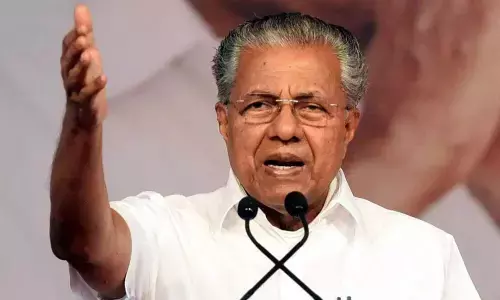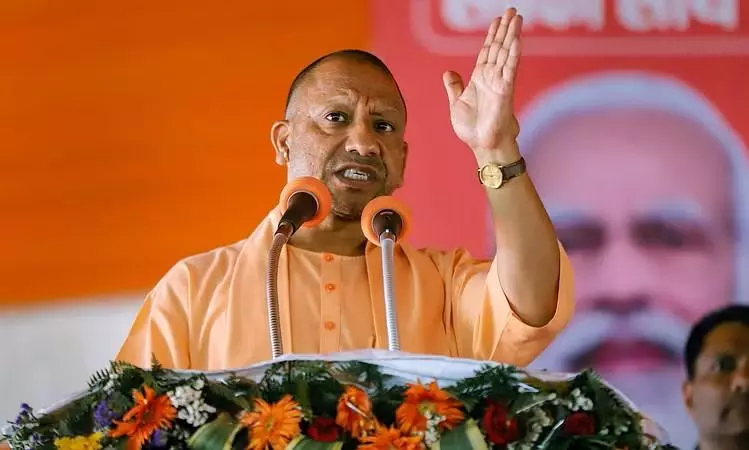
Yogi tries to overturn SC ruling on AMU minority status, demands caste-based reservation
text_fieldsA day after the Supreme Court paved the way for Aligarh Muslim University to regain its minority status, which would allow for a 50% reservation for Muslim students, Uttar Pradesh Chief Minister Yogi Adityanath demanded that the university implement caste-based reservations, stating that every institution receiving government funding should extend benefits to SC, ST, and OBC communities through reserved seats.
During an election rally in Aligarh district, Adityanath questioned why AMU, which receives public funding, does not implement reservation policies for Scheduled Castes (SC), Scheduled Tribes (ST), and Other Backward Classes (OBC), even though it has reportedly made provisions to reserve 50% of seats for Muslim students.
This latest contention has emerged in the context of a Supreme Court decision on Friday, which reconsidered a decades-old ruling regarding AMU’s minority status. The court overruled a 1967 judgement, known as the Azeez Basha case, which had declared that institutions established by parliamentary acts could not claim minority status.
In that decision, AMU was designated as a central university, meaning it was subject to non-discriminatory policies under Articles 29 and 30 of the Indian Constitution. Article 29 protects citizens from discrimination in state-run institutions based on religion, race, caste, or language, while Article 30 protects minority-run institutions from state discrimination in matters of financial aid.
Friday’s judgement was welcomed by those advocating for minority rights in educational institutions. However, it also revived political debate, as Adityanath argued that a university receiving government funding should extend benefits to SC, ST, and OBC communities through reserved seats. He criticised opposition parties, such as the Congress, the Samajwadi Party, and the Bahujan Samaj Party, alleging that they had hindered caste-based reservations at AMU due to political motivations aimed at securing votes.
The recent Supreme Court decision arose from a legal dispute that has spanned several years, originating in a 2005 case when AMU reserved 50% of seats in its postgraduate medical courses for Muslim students. The Allahabad High Court struck down this policy, reasoning that AMU was not entitled to minority status based on the 1967 Supreme Court judgement.
Following the High Court’s ruling, both AMU and the Union government challenged the decision in the Supreme Court, which issued a stay on the reservation policy and referred the matter to a larger bench in 2006. Friday’s judgement by the Supreme Court now grants AMU the possibility of minority status, pending a review by a regular bench that will apply specific legal tests to determine the outcome.
The reservation issue at AMU reflects broader debates around minority rights and reservation policies in India. Most government-funded educational institutions in India follow reservation quotas for underrepresented communities, with 15% of seats reserved for SCs, 7.5% for STs, 27% for OBCs, and 10% for Economically Weaker Sections (EWS).
In contrast, minority institutions, if given constitutional protection, may provide reservations aligned with their community objectives without mandatorily adhering to the general reservation quotas.
Former Chief Justice DY Chandrachud indicated that a regular bench would examine the applicability of AMU’s minority status based on guidelines outlined in the Supreme Court’s recent judgement. This assessment will consider the nature of AMU’s establishment under an Act of Parliament and the scope of Articles 29 and 30 in defining the rights of minority-run educational institutions.
As the debate continues, the issue of AMU’s reservations policy is expected to remain politically charged, especially in light of upcoming elections in Uttar Pradesh. The Khair constituency in Aligarh district, reserved for SC candidates, will be contested on November 20, adding a layer of local electoral significance to the broader reservation debate.
Adityanath’s statements at the rally suggest that the state government will continue advocating for caste-based reservations at AMU, potentially influencing the political landscape leading up to the polls.






















